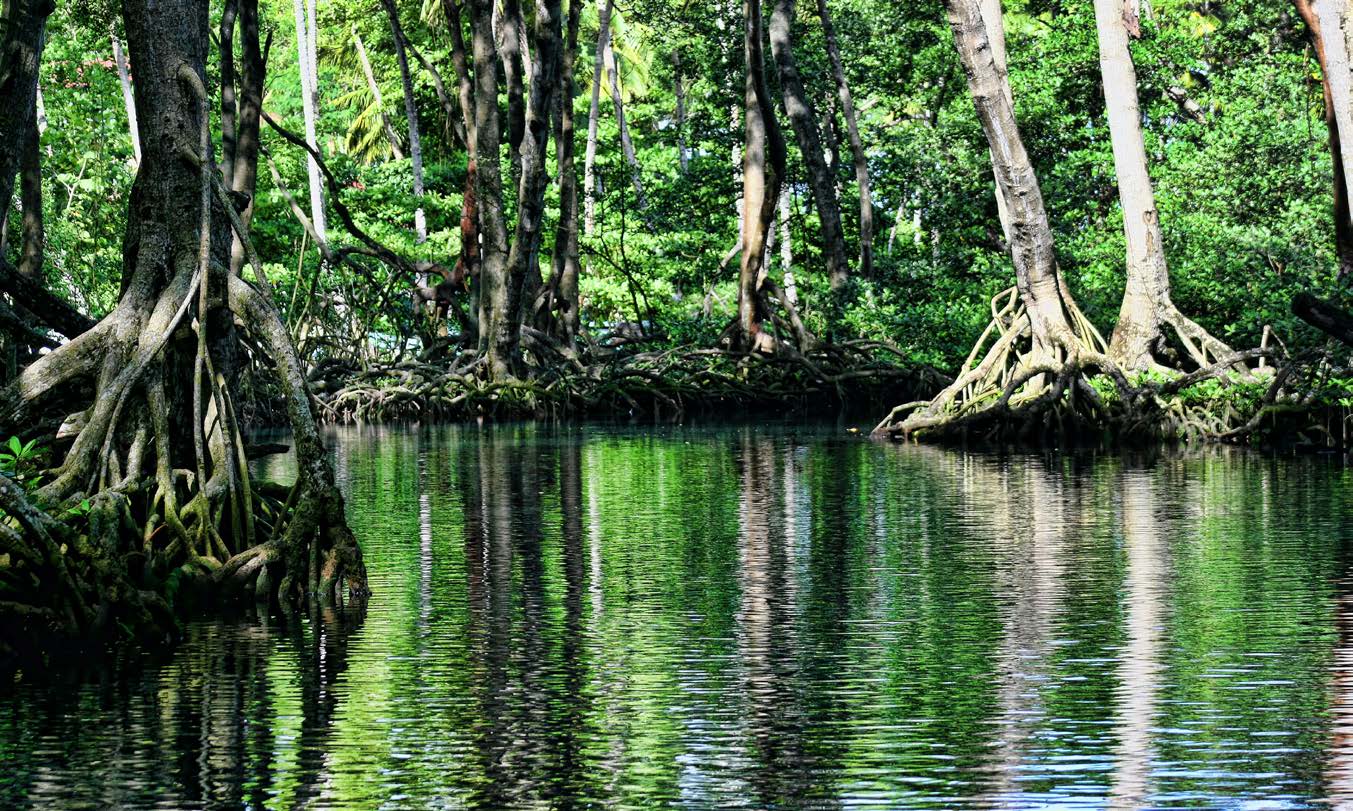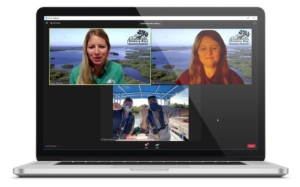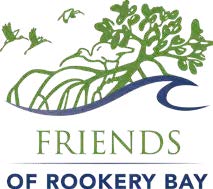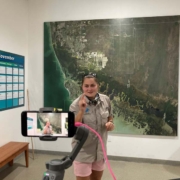A new way to Tour Rookery Bay Reserve
The View Through a Virtual Tour at Rookery
 Covering 40 percent of Collier County’s coastline, Rookery Bay Research Reserve has 110,000 acres to explore. Some travel by water. Others meander the scrub trails. And many others do both from the comfort of their home.
Covering 40 percent of Collier County’s coastline, Rookery Bay Research Reserve has 110,000 acres to explore. Some travel by water. Others meander the scrub trails. And many others do both from the comfort of their home.
“Since the pandemic began, we have seen a tremendous increase in people wanting to connect with nature,” says Athan Barkoukis, executive director for the Friends of Rookery Bay. The reserve’s
education team now provides even more exciting ways to see what lives in local waters.
Education programs for the public grew out of the education team’s revised school field trip programs. For years, Rookery Bay Research Reserve offered hands-on science education programs
such as Estuary Explorers for 4th grade students, Survivors program for 7th grade students and a high school marine science curriculum. Students literally got their feet wet using seine nets or
going on boat trawls, learning about the coastal environment in their own backyard.
 While those types of field trips are on hold, there is a silver lining. “Rookery Bay staff are actually reaching more students this year than they would have in person,” Barkoukis says. “Using the eCollier learning platform, the education staff reached 2,100 students in nine different schools through the end of February. This is more than double the number of students they would see in person in that time period.”
While those types of field trips are on hold, there is a silver lining. “Rookery Bay staff are actually reaching more students this year than they would have in person,” Barkoukis says. “Using the eCollier learning platform, the education staff reached 2,100 students in nine different schools through the end of February. This is more than double the number of students they would see in person in that time period.”
Though the students can’t wade into the estuary, educator Jeannine Windsor does that for them during virtual field trips. She steps into Henderson Creek, behind the Rookery Bay Environmental Learning Center, to teach students about mangroves, juvenile fish that start their life in the Rookery Bay estuary, and all the critters – including insects – that live in or on mangroves.
EDscursions for All
Virtual education isn’t just for school students. The public can take free EDscursions virtual field trips twice a month on a variety of topics related to plants, animals and the environment. Each runs from 9-9:45 a.m. on a weekday. “These virtual programs have been a hit, attracting viewers from around the world,” Barkoukis says.
EDscursions follow Rookery Bay’s biologists and scientists as they go out on research boats, visit Keewaydin Island or search through the upland habitats in their jobs to protect the reserve’s 110,000 acres. During “Finding Fish” on April 9 and May 14, viewers will follow biologists on a research vessel who will pull up marine critters in a trawl net. Before releasing them back to the estuary waters, the staff will display and discuss what they find.
“One of the more common critters that we find is the polka-dot batfish, which many people have never seen,” Barkoukis says.
On April 23, “Fire on the Florida Landscape” will provide a look at the reserve’s prescribed fire program. “Rookery Bay’s land managers set and control fires to not only create better habitat for wildlife but also to protect Collier County residents from wildfires,” Barkoukis explains.
The May 28 program, “Native Biodiversity in the Reserve,” will focus on threatened plants and animals in the reserve, such as panthers. Pre-registration for each EDscursions trip is required at RookeryBay.org/events/lectures-classes.
“About 100 species rely on the red, black and white mangroves found in Collier County,” Barkoukis explains. These include spiders, crabs, snails, raccoons, many species of fish, and the more than 150 bird species that live in or stop by Rookery Bay Research Reserve while migrating.
In addition to learning about the importance of mangrove habitats, students also learn that oysters create their own habitat that many animals rely on. The educators show how critters such as
lightning whelk snails and crown conchs use oyster beds as either food sources or places to hide from predators.
Rookery Bay educators supplement the virtual programs with videos they produced, worksheets, and even samples of mangrove seeds, called propagules, so students can grow mangroves in their
classroom.
“Having students participate in pre-trip activities fosters an understanding of the content that the Rookery Bay educators are going to present and keeps the students very engaged during the
virtual field trip,” Barkoukis says.
The educators also stay in touch throughout the school year, sharing photos from Rookery Bay’s wildlife cameras of panthers, bears and other animals that wander by the field equipment. The success of virtual education is something to be built upon, Barkoukis says. “Even when in-person programming returns, the virtual platform will be vital to fostering estuarine education and
inspiring stewardship of our local environment.”
Eco-tours
Once inspired through a school field trip or virtual EDscursion, many people then choose to visit the reserve themselves. Friends of Rookery Bay offers guided kayak tours, guided small boat tours for individual families, and kayak and stand-up paddle rentals.
“For the past year, we have been celebrating the fact that ‘The Outdoors is Always Open,’ ”Barkoukis says. “People are looking for fresh air, sunshine and social distancing. We have all of that, plus CDC safety protocols to ensure guest safety. Anyone taking a staycation this year has many opportunities to enjoy Rookery Bay.”
 Learn more at rookerybay.org or call Friends of Rookery Bay at 239-530-5972.
Learn more at rookerybay.org or call Friends of Rookery Bay at 239-530-5972.




Leave a Reply
Want to join the discussion?Feel free to contribute!